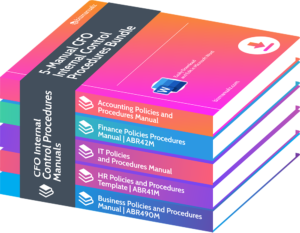What CFO Interview Questions are Asked?

To gain insights into common CFO interview questions, delve into CFO Responsibilities. Uncover the intricacies of navigating technical expertise and experience, honing leadership and management skills, and showcasing strategic thinking and problem-solving abilities. Prepare to excel in your next CFO interview with this comprehensive guide. What CFO interview questions are asked?
Common CFO Interview Questions
Common CFO interview questions often revolve around technical expertise, leadership, and strategic thinking. Of course this also includes financial experience, management skills, and problem-solving abilities too.
Technical expertise and experience
CFOs are the Chief Financial Officer and need to possess amazing financial analysis skills, such as understanding financial ratios, like liquidity, profitability, and solvency. Risk management is also crucial, and CFOs should be able to spot potential risks and create strategies to reduce them.
When it comes to financial planning and forecasting, CFOs must have expertise in developing budgets, conducting variance analysis, and utilizing forecasting techniques. Taxation knowledge is a must for CFOs, as they should be well-versed in corporate tax laws, international taxation policies, transfer pricing rules, and emerging issues.
Additionally, CFOs must be familiar with IT systems integration, such as ERP software or BI tools, and embrace automation opportunities. They must also keep up-to-date with industry trends and changes to accounting standards and financial reporting practices.
To boost their technical expertise, CFOs should think about getting certified, like CPA or CFA. To be a CFO takes great leadership and management skills, as balancing the company’s finances is like performing a high-wire act over hungry sharks.
Leadership and management skills
CFOs must have strong communication skills to effectively convey complex financial information. They should develop a long-term vision and analyze data to identify opportunities. Moreover, they must be adept at building teams and making informed decisions.
Leadership involves active listening, empathy, and adaptability. CFOs must stay abreast of industry trends and best practices to remain valuable, especially if they are a CFO of a startup. They should also hone their leadership & management skills through professional development.
Don’t miss out on becoming and exceptional CFO and take action now! Strategic thinking and problem-solving abilities are essential too.
Strategic thinking and problem-solving abilities
Do you know how to handle stress? Well, I tend to just lock myself in a dark room and cry; however, I have heard that breathing exercises are more professional. Therefore, I’m considering trying those out!
Behavioral and Situational Questions
To navigate behavioral and situational questions during a CFO interview, tackle topics like conflict resolution and decision-making, change management and adaptability, and ethical dilemmas and integrity. Explore these sub-sections to understand how to address these crucial areas during your interview and showcase your suitability for the role.
Conflict resolution and decision-making
Conflict resolution and decision-making are essential skills for success. To help in this pursuit, here’s a visualization of the key aspects:
| Aspects | Description |
|---|---|
| Communication Skills | Expressing thoughts, ideas, and concerns to others. |
| Active Listening | Genuinely hearing others’ perspectives. |
| Problem Solving | Analyzing and solving root causes of conflicts. |
| Negotiation Skills | Crafting mutually beneficial solutions. |
| Emotional Intelligence | Being aware of one’s emotions and those of others. |
Conflict resolution doesn’t always lead to agreement. Instead, it aims for fair resolutions that meet everyone’s needs. Studies show organizations with effective conflict resolution strategies have higher productivity, creativity, and satisfaction. So why adapt when you can just pretend that change is a funky new dance move?
Change management and adaptability
Change management and adaptability are two different skills. Change management focuses on organizing and leading transitions, while adaptability involves adjusting to new situations. To be adaptable, individuals must have and open mind and be flexible to changes. This requires clear communication, stakeholder involvement, and a well-defined strategy.
Ethical dilemmas and integrity
Ethical dilemmas demand careful consideration of the possible outcomes of different actions. Uphold integrity by making decisions aligned with honesty, fairness, and transparency.
Familiarize yourself with codes of conduct and ensure they are followed. When dealing with conflicting interests, prioritize and look for a resolution that keeps ethical standards in mind.
Act with transparency, take responsibility, and communicate openly. These form the foundation of maintaining integrity. Also, consult with mentors and colleagues to help navigate the complexities of difficult decisions while staying true to your values.
Industry-Specific Questions
To gain a comprehensive understanding of industry-specific questions in CFO interviews, dive into the sub-sections: financial regulations and compliance, risk assessment and management, and forecasting and budgeting. Discover how these topics provide solutions to the challenges faced by CFOs in navigating the complex financial landscape.
Financial regulations and compliance
Financial regulations and compliance have key aspects. The Securities Exchange Commission (SEC) and Financial Industry Regulatory Authority (FINRA) are regulatory bodies. Know Your Customer (KYC), Anti-Money Laundering (AML), and the Foreign Account Tax Compliance Act are compliance standards. Reporting requirements are financial statements, transaction reports, and client onboarding forms. Penalties can be fines, loss of license, or imprisonment.
Financial institutions must follow local laws according to their jurisdiction. Capital adequacy requirements, loan-to-value ratios, and foreign currency transactions can have restrictions. Non-compliance may result in severe penalties and harm a firm’s reputation.
A major investment bank was fined millions for violating anti-money laundering laws. They failed to detect suspicious transactions and didn’t report to the authorities. This caused damage to their reputation and loss of client trust.
Risk managers in this industry are like the grim reaper. Instead of a scythe, they use spreadsheets and risk assessments to make companies suffer.
Risk assessment and management
Check this table out! It explains key aspects of risk assessment and management.
| Aspect | Description |
|---|---|
| Risk analysis | Finding and judging potential risks. |
| Risk evaluation | Working out how serious the risks are. |
| Risk treatment | Making plans to manage and reduce risks. |
| Risk monitoring | Reviewing and updating risk management plans. |
Plus, staff at every level should be part of the risk management process so everyone understands potential dangers and the steps to tackle them.
Pro Tip: Reassessing and refreshing risk assessments is very important. New risks can always arise, so existing risk prevention strategies may need to change.
Forecasting and budgeting
Let’s take a look at the following table for a better understanding of forecasting and budgeting:
| Column 1 | Column 2 | Column 3 |
|---|---|---|
| Forecasted Sales | Actual Sales | Variance |
| $500,000 | $480,000 | -$20,000 |
This table shows us the forecasted and actual sales figures with the variance. It assists businesses to measure their performance versus the predicted targets.
There are other things to consider when forecasting and budgeting. These include market trends, customer behavior, and internal operational costs. Companies can use these details to make smart choices and reduce risks while planning financially.
It is noteworthy that accurate forecasting has a major impact on and organization’s success. A study from Deloitte states that organizations that use reliable forecasts often reap higher profitability and long-term stability.
Soft Skills and Cultural Fit
To ace the soft skills and cultural fit portion of a CFO interview, impress your interviewer with stellar communication and collaboration abilities. Showcase your knack for relationship building and networking. and demonstrate your resilience and stress management capabilities. These sub-sections are key solutions that will set you apart from other candidates.
Communication and collaboration
Let’s take a look at how communication and collaboration skills differ with individuals. John has excellent communication skills, Sarah has outstanding collaboration skills, and David has average abilities in both.
To improve communication and collaboration, you can:
- Listen actively. Acknowledge what others say without interruption. This builds trust and understanding.
- Keep it simple. Use concise language and avoid jargon.
- Open up. Encourage everyone to share their thoughts without fear. This helps to create innovative solutions.
By following these suggestions, individuals can better their own skills and become more successful. Plus, relationship building and networking can help too – why make friends when you can collect business cards?
Relationship building and networking
Building relationships and networking are key for success. It’s about connecting with people, inside and outside your business, to form a strong network of contacts. That way you get info, insights and create chances for collaboration and growth.
Try:
- Listen hard to understand others’ views and build trust.
- Show real interest in their work and achievements.
- Go to industry events, conferences and seminars to meet new people in your field.
- Stay positive on social media platforms.
- Foster lasting relationships by offering help or sharing valuable resources.
- Have a diverse network with people from different backgrounds and industries.
Networking and relationship building broadens your knowledge and keeps you up to date with the latest trends. This can lead to job openings, partnerships or mentorship possibilities.
Remember to follow up after initial meetings. A short email or a LinkedIn message could make and impact.
Resilience and stress management
Resilience is the power to recover from tricky experiences and handle stress productively. It includes making coping methods and staying mentally strong in the face of issues. Stress management focuses on recognizing and managing stress levels to keep overall wellbeing.
When it comes to resilience and stress management, it is key to create strategies that help us go through life’s highs and lows with ease. Building a resilient mindset involves growing self-awareness, emotional intelligence, and adaptability. By being conscious of our emotions and understanding how they alter our reactions, we can manage stressors and stop them from throwing us off balance.
One way to boost resilience is by exercising positive thinking. By changing negative thoughts into more positive ones, we can confront tough situations with a constructive attitude. This helps us view obstacles as chances for growth instead of uncontrollable difficulties.
Moreover, following healthy lifestyle habits like regular exercise, enough sleep, and proper nutrition can greatly contribute to resilience and stress management. Physical wellbeing affects mental wellbeing, allowing us to better handle stressors in our lives.
Pro Tip: Remember that resilience is not about evading stress entirely but rather developing the ability to manage it properly. Growing resilience takes time and practice, so be kind to yourself as you work towards increasing your skill to manage stress.
Questions to Assess Career Goals
To assess career goals effectively within CFO interviews, delve into the candidate’s long-term vision for the company, personal growth and professional development aspirations, as well as their alignment with the organizational values and mission. Each sub-section provides insight into the candidate’s mindset and potential fit within the company’s strategic objectives.
Long-term vision for the company
A company’s long-term vision is the roadmap to success. It shows the direction and goals it wants to reach in the future. It gives employees a purpose and motivation to work together.
It’s important to make sure individual career goals fit with the organization’s objectives. Employees who understand and support the company’s vision contribute more and stay engaged.
To check if someone’s career goals are aligned with the company’s vision, employers might ask questions. This helps see if they fit and also shows what their future aspirations are. This helps the company identify development opportunities and potential leaders.
By assessing alignment with the company’s vision, organizations can create and environment where everyone is working towards the same goals. This helps productivity and employee satisfaction as people feel their work matters.
Apple Inc.’s mission is “to make a contribution to the world” and Tesla Inc. aims “to accelerate sustainable transport”. These companies are known for communicating their long-term visions well.
Aligning personal goals with a company’s vision benefits everyone. It creates a culture that encourages growth, innovation, and collaboration towards achieving their goals.
Personal growth and professional development aspirations
When it comes to personal growth and professional development, it’s important to consider your ambitions. What do you aim to achieve in your career? What are your goals for your personal growth? Asking yourself these questions can help steer you in the right direction and ensure you are continuously pushing yourself.
One factor to consider is what skills or knowledge you’d like to acquire. Identify any gaps in your current skill set. Want to learn a new coding language or get a better understanding of marketing strategies? Decide what skills and knowledge you want to develop – this will provide a clear path for your professional growth.
Another important factor is the level of responsibility or leadership you aspire to have. Would you like to be a manager or lead a team? Knowing the level of responsibility you want will help you decide which types of opportunities you should seek out. This may involve taking on extra projects or looking for mentors who have achieved the position you desire.
Also think about the impact you want to make in your profession. Do you want to make a difference in people’s lives, by providing resources or services, or by advocating for change in your industry? By understanding your desired impact, you can align your goals and actions with this purpose.
To reach your aspirations, here are some helpful suggestions:
- Set SMART goals – specific, measurable, attainable, relevant, and time-bound. Breaking down your larger ambitions into smaller actionable steps will make them more achievable.
- Then seek out opportunities for continuous learning – attend workshops, conferences, or take online courses to expand your knowledge and skills.
- Networking with other professionals in your field can also offer unique insights and mentorship opportunities.
Finally, assess and evaluate your progress towards your ambitions regularly. This will help keep you on track and make any necessary adjustments. Reflect on successes and challenges, and use each experience to grow professionally.
Alignment with organizational values and mission
Aligning one’s career goals with and organization’s values aids in creating a harmonious work environment. When employees have similar beliefs and priorities, it makes for easier collaboration and growth. Plus, it helps people find meaning in their work. When values match the mission, individuals are driven to make a difference and contribute to shared objectives.
Professional development is easier, too! By understanding the organization’s core principles, employees can identify areas for improvement and pursue opportunities that fit their career goals.
Lastly, long-term satisfaction and fulfillment are promoted. When and individual feels connected to the purpose, they experience greater fulfillment, leading to job satisfaction and wellbeing.
Additionally, aligning with organizational values allows one to embody the organization’s culture. This alignment produces authenticity, which increases employee engagement.
As a pro tip, reflect on personal values and consider how they align with those of desired organizations. It’s worth it – even if you have to face mind-bending questions and make life decisions!
Wrap-up Questions for the Candidate
To wrap up the CFO interview, you need to evaluate the candidate’s overall fit for the company and the role. This involves assessing their perception of the company and their fit for the position, addressing any concerns they may have, and gauging their level of interest and enthusiasm for the role.
Candidate’s assessment of the company and role fit
Assessing the compatibility between CFO candidate and company is essential. Let’s explore the evaluation process with brevity and clarity.
- Compatibility: How do the candidate’s skills, experience, and values match the company’s mission, vision, and culture?
- Growth opportunities: Does the role offer potential for personal and professional development?
- Role expectations: Are the responsibilities and tasks in line with the candidate’s strengths and goals?
Additionally, take note of other factors, such as work-life balance, workplace diversity, and employee satisfaction. Consideration of these details is key to ensuring a successful fit between candidate and company.
Furthermore, the candidate should share their ideas during wrap-up discussions. They can suggest ways to refine job descriptions or new strategies for onboarding. This open dialogue will help both parties build better connections and gain confidence in the decision-making process.
To conclude, assessing a candidate’s fit needs careful analysis of compatibility, growth opportunities, and role expectations. With constructive input from the candidate, organizations can benefit from improved understanding and alignment, and the candidate can make informed decisions about joining a new team.
Inquiries about potential challenges or concerns
Pro Tip: Showing off problem-solving skills by proactively addressing challenges and concerns demonstrates foresight. This candidate’s interest in the position is likely to sparkle like a small town!
Questions to ask the candidate:
- What challenges do they foresee in the role, and how will they tackle them?
- Do they have any worries about company culture or team dynamics?
- How will they overcome potential obstacles while working on projects or tasks?
- Are they confident they can meet performance expectations?
Also, find out if the candidate has experience with similar challenges and what strategies they used for success.
Candidate’s interest and enthusiasm for the position
The eagerness of the candidate can be seen in multiple ways. Let’s explore how their passion and drive is evident.
Their interest in the company’s mission and values is clear through their research. Additionally, during the interview, they were ecstatic when discussing potential projects.
They also showed confidence in their skills and how they fit the role. It was great to witness their excitement as they discussed collaborating with others. Their positive energy was contagious and left a great impression.
It’s worth noting that they expressed a strong desire to contribute to the organization. Hence, don’t wait! Reach out now to secure this amazing candidate before they get away!
Frequently Asked Questions

1. What are some common CFO interview questions?
Answer: Some common CFO interview questions include:
- How do you handle financial forecasting and budgeting?
- Can you explain your experience with risk management and compliance?
- How do you ensure accuracy and integrity in financial reporting?
- What strategies have you implemented to improve financial performance?
- How do you communicate complex financial information to non-financial stakeholders?
- Can you describe your approach to managing a finance team?
2. How should I prepare for a CFO interview?
Answer: To prepare for a CFO interview, you should:
- Familiarize yourself with the company and its financial operations.
- Review industry trends and challenges.
- Prepare examples of your achievements and experiences relevant to the CFO role.
- Practice answering common CFO interview questions.
- Brush up on technical accounting and financial knowledge.
- Be ready to discuss your leadership and strategic thinking abilities.
3. What skills and qualities are important for a CFO?
Answer: Important skills and qualities for a CFO include:
- Strong financial acumen and analytical skills.
- Excellent leadership and decision-making abilities.
- Advanced knowledge of accounting principles and regulations.
- Strategic thinking and the ability to contribute to the company’s overall business strategy.
- Effective communication and collaboration skills.
- The ability to adapt to changing financial landscapes and manage risk.
4. How do CFO interview questions differ from other finance roles?
Answer: CFO interview questions differ from other finance roles as they focus on higher-level skills such as strategic thinking, leadership, and the ability to drive financial performance. CFO interviews may also involve questions about risk management, communication strategies, and managing finance teams.
5. What are some behavioral questions asked during CFO interviews?
Answer: Some behavioral questions asked during CFO interviews are:
- Can you describe a challenging financial situation you faced and how you resolved it?
- Tell me about a time when you had to influence key stakeholders to achieve a financial objective.
- How do you motivate and develop your finance team?
- Can you share and example of a financial initiative you implemented that had a positive impact on the business?
- Describe a time when you made a difficult financial decision under time constraints.
6. How important is industry knowledge in a CFO interview?
Answer: Industry knowledge is important in a CFO interview as it demonstrates your understanding of the specific challenges and opportunities within the industry. It allows you to provide strategic insights and make informed financial decisions. However, while industry knowledge is valued, transferable skills and a strong financial background can still be beneficial in a CFO role or fractional CFO.
















Leave a Reply